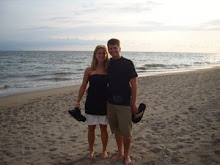“There can only be a community of peace when it does not rest on lies and injustice.”
-Bonhoeffer, “No Rusty Swords”
I’m reading a book entitled “Performing the Faith: Bonhoeffer and the Practice of Non-violence” by Hauerwas. I’m only through the first two chapters, which happen to be the only chapters solely dedicated to Bonhoeffer, but I am really enjoying it. Since I have no one with whom to discuss, I choose to write. I want to say that Bonhoeffer’s life was intriguing even without his theology, but one cannot seem to separate the way he lived from his theology. It is also clear that his theology was unfinished and from my limited knowledge, misunderstood. His disdain for institutional religion has been viewed as some as the beginning of the “Death of God” movement. Hauerwas asserts that this would cause Bonhoeffer great agony, but I digress: on to the book.
Hauerwas asserts that Bonhoeffer was devoted to “the visibility of the church amid the ruins of Christendom.” This visibility could only be established by the proclamation and living of the truth. In other words, the “community of peace” cannot rest on “lies and injustice.” The community of peace I am equating to the visible church and the lies parallels living in truthfulness.
It is interesting to see Bonhoeffer’s take on the American church. Not only does he condemn the “Protestant fugitives” who fled Europe to worship God in peace, thus foregoing suffering, but critiques the American church in saying that “they do not see the radical claim of truth on the shaping of their lives. Community is therefore founded less on truth than on the spirit of ‘fairness.’” One can wonder whether this derives from the political nature of democracy (which is built on compromise), but that is a different discussion. Hauerwas characterizes it this way, “Fairness, not truth, becomes the primary commitment necessary to sustain community for Americans.”
As it would go, our idea of peace is based upon a sort of tolerance, a “subordination of truth and justice” where peace is seen as the absence of conflict rather than the reality of the gospel. A peace brought by war is only an illusory peace, a peace that is brought by injustice. Can there be war without a form of injustice? The visible church expresses that the gospel is “not an answer to questions produced by human anxiety, but a proclamation of a ‘fact.’” Bonhoeffer brings together the reality of truth-living with the visible community of peace.
But is he clear as to what that ‘truth’ is? Some argue no, some say he promoted a type of situational ethic (brought to fruition through his plot to assassinate Hitler), and still others (others being Hauerwas in this book) say that Bonhoeffer did not see the significance of giving a ‘theory of truth’ but rather realizing that being truthful is something learned. Whatever Bonhoeffer meant, we know that our living truthfully had everything to do with our life in connection with God’s, our ability to express truth vitalized through the expression of reality, as it is in God. And one cannot grasp reality without the truthful witness of Jesus Christ. As it turned out, Bonhoeffer saw the terrible lie that was Hitler as starting with the inability of the church to speak truth effectively even in the little things. It begs the question of whether our churches are adequately speaking/living truth even in the little things. Hauerwas continues that “Bonhoeffer believed that the church is the sign that God has placed in the windows of the world to make possible a truthful politics.” Is the church now truly a visible witness or have we consigned ourselves to the storefronts of abandoned warehouses?
Subscribe to:
Post Comments (Atom)

No comments:
Post a Comment